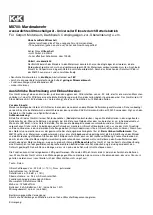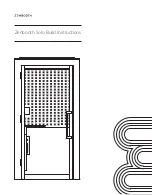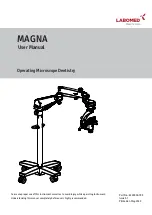
26
14.0
Notes on EMC
14.4 Recommended separations between portable and mobile RF Communications
equipment and the ATMOS
®
A / C 161 / 261 Aspirator
Recommended separations between portable and mobile RF Communications
equipment and the ENT-camera ATMOS
®
A / C 161 / 261 Aspirator
The ATMOS
®
A / C 161 / 261 Aspirator is intended for use in electromagnetic environment in which ratiated distur-
bances are controlled. The customer or user of the ATMOS
®
C 161 Aspirator can help prevent electromagnetic
interference by maintaining a minimum distance between portable and mobile RF Communications equipment and
the ATMOS
®
A / C 161 / 261 Aspirator as recommended below, according to the maximum output power of the
communications equipment.
Separation distance, depending on transmit-frequency m
Nominal output of the
transmitter
W
150 kHz bis 80 MHz
d = [0,35] √ P
80 MHz bis 800 MHz
d = [0,35] √ P
800 MHz bis 2,5 GHz
d = [0,35] √ P
0,01
0,035
0,025
0,07
0,1
0,11
0,11
0,22
1
0,35
0,35
0,7
10
1,1
1,1
2,2
100
3,5
3,5
7,0
For transmitters for which the maximum nominal output isn´t indicated in the above table, the recommended sepa-
ration distance
d
in meters (m) can be determined using the equation belonging to the respective column whereas
P
is the maximum nominal output of the transmitter in watts (W) acc. to manufacturer´s specification.
NOTE 1 With 80 MHz and 800 MHz the higher frequency range applies.
NOTE 2 These guidelines don´t like to be applicable in any case. The propagation of electromagnetic sizes is
influenced by absorptions and reflections of buildings, objects and peopl
Summary of Contents for 313.0000.B
Page 27: ...27 For your notes ...



































